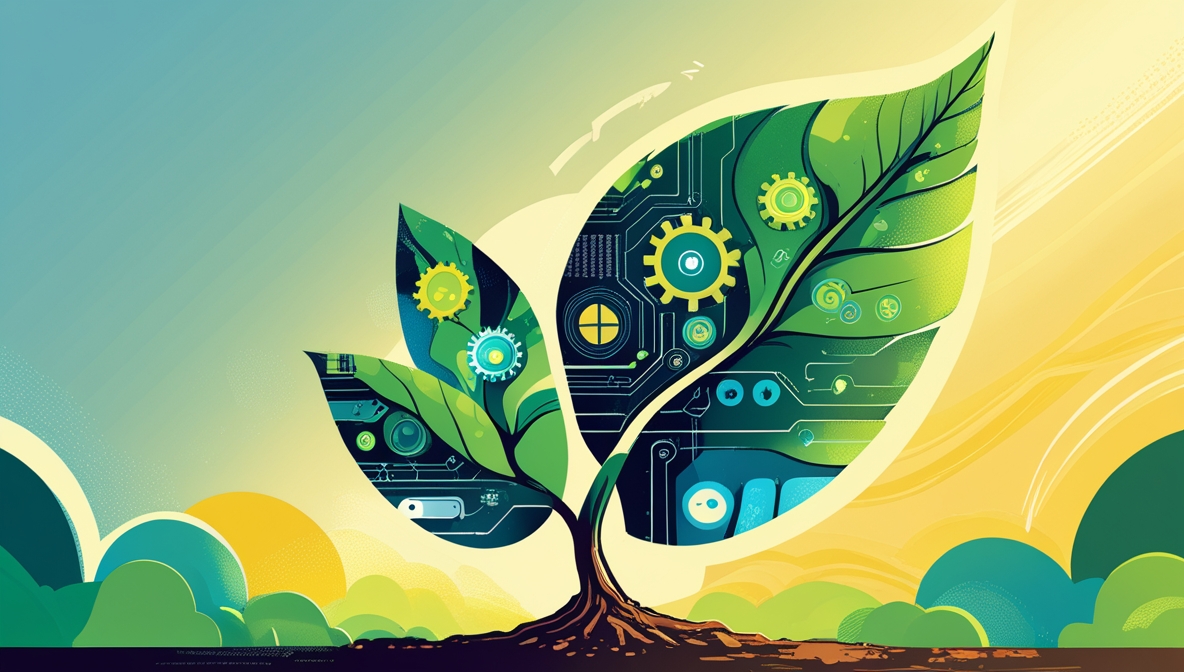Iowa’s Creative Corridor is uniquely positioned to lead in sustainable business innovation. Its combination of educational institutions, thriving small business ecosystems, and community-driven initiatives fosters an environment ripe for progress. As green businesses continue to reshape industries worldwide, the Corridor offers the resources, talent, and vision to make sustainability a central pillar of its economic growth. The question isn’t whether the region can embrace this future—it’s how quickly it can adapt and lead.
Key Drivers of Green Business in Iowa’s Creative Corridor
- Academic Institutions: Home to universities and colleges focusing on sustainability and renewable energy research, the Corridor serves as a training ground for the next generation of green business leaders. Programs focused on bioengineering, clean energy, and environmental science equip students with practical skills that can be applied immediately to local industries.
- Government Support: Iowa’s state policies, including incentives for renewable energy adoption and grants for sustainable farming practices, encourage green innovation. Local government partnerships with businesses further drive initiatives in clean technology, energy efficiency, and waste reduction.
- Community Values: The Corridor’s residents prioritize environmental stewardship. Community gardens, renewable energy co-ops, and zero-waste programs demonstrate a commitment to sustainability that aligns with the goals of green businesses.
Trends Shaping the Corridor’s Green Economy
Renewable Energy Expansion
Iowa is a national leader in wind energy production, with over 40% of its electricity generated from wind. The Corridor builds on this foundation with solar energy projects and investments in battery storage technologies. Local companies are also exploring innovative uses of biofuels derived from the state’s agricultural output.
Green Building Practices
The demand for eco-friendly construction is growing. From LEED-certified commercial spaces to energy-efficient homes, businesses in the Corridor are adopting sustainable materials and practices. Local architecture firms and contractors are finding success by integrating features like green roofs, solar panels, and geothermal heating systems.
Sustainable Agriculture
The region’s agricultural roots provide fertile ground for advancements in sustainable farming. Regenerative practices such as cover cropping, precision irrigation, and organic farming methods are gaining traction. Agritech startups are collaborating with local farmers to improve yields while minimizing environmental impact.
Circular Economy Initiatives
The shift toward a circular economy—where resources are reused, recycled, and repurposed—is becoming more apparent. Companies in the Corridor are investing in waste management solutions and manufacturing processes that minimize waste. This includes everything from upcycling agricultural byproducts to producing biodegradable packaging.
Green Transportation
Transportation accounts for a significant portion of greenhouse gas emissions. The Corridor is seeing growth in electric vehicle adoption, as well as the development of EV infrastructure such as charging stations. Public transit systems are also exploring cleaner alternatives, including electric and biodiesel-powered buses.
Opportunities for Businesses
Collaboration Across Sectors
Collaboration between local businesses, academic institutions, and government entities presents immense potential. Initiatives like public-private partnerships can accelerate the adoption of renewable energy, sustainable manufacturing, and green technology.
Innovation in Agritech
Agricultural technology companies have the opportunity to lead in areas like precision farming, drone technology for crop monitoring, and sustainable irrigation systems. With Iowa’s strong farming heritage, these innovations can position the Corridor as a global leader in agritech solutions.
Expansion of Green Job Markets
As green industries grow, so does the demand for skilled professionals. Jobs in renewable energy, sustainable construction, and environmental consulting are on the rise. Workforce development programs focused on green skills can help meet this demand.
Consumer Demand for Sustainability
A growing number of consumers prioritize environmentally friendly products and services. Businesses that align their offerings with sustainable practices, such as using eco-friendly packaging or sourcing local materials, can tap into this market trend.
Challenges to Address
- Infrastructure Needs: Expanding renewable energy infrastructure, such as wind farms and solar grids, requires significant investment. Overcoming these logistical challenges is critical to sustaining growth.
- Workforce Training: While the demand for green jobs is increasing, there is a gap in the availability of skilled labor. Local education and training programs must focus on equipping workers with the necessary expertise.
- Balancing Growth with Sustainability: Rapid economic growth can sometimes conflict with environmental goals. Businesses must balance profitability with their commitment to sustainability.
How Local Businesses Can Lead
Adopt Renewable Energy Solutions
Installing solar panels, participating in wind energy programs, and optimizing energy efficiency are practical steps businesses can take to reduce their carbon footprint.
Implement Waste Reduction Programs
From recycling initiatives to rethinking product design, reducing waste can lead to cost savings and environmental benefits. Partnering with local waste management firms can provide scalable solutions.
Support Local Supply Chains
Using locally sourced materials not only supports the regional economy but also reduces emissions from transportation. This aligns with the community’s values and fosters goodwill.
Engage in Green Certifications
Pursuing certifications like LEED or ENERGY STAR demonstrates a commitment to sustainability and provides businesses with a competitive edge.
Foster Innovation
Investing in research and development, whether independently or through partnerships with local universities, can drive the creation of new green technologies and processes.
The Role of the Community
Residents of the Creative Corridor can support green business initiatives by:
- Choosing to buy from companies that prioritize sustainability.
- Participating in local renewable energy programs.
- Advocating for policies that promote environmental responsibility.
- Volunteering for community projects focused on conservation and green initiatives.
Looking Ahead
The future of green business in Iowa’s Creative Corridor is promising. By leveraging its resources, fostering collaboration, and addressing challenges with innovation and resolve, the region can set an example for sustainable economic growth. With its community-driven spirit and commitment to progress, the Corridor is poised to thrive as a hub for green enterprise.
